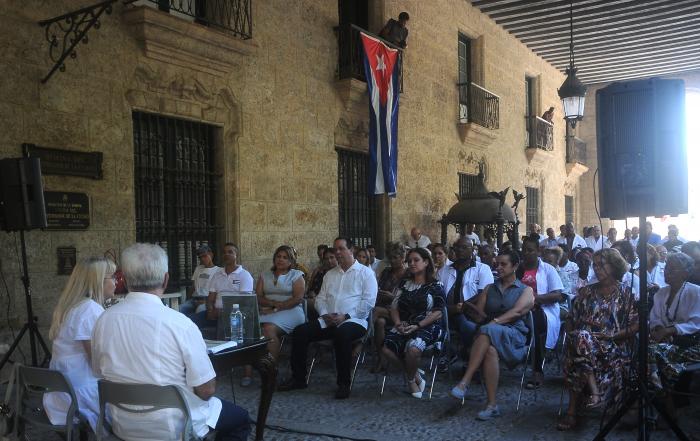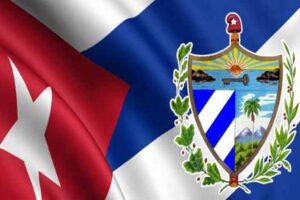So that the feats marking the life of this extraordinary mambí might be known, the book *El brigadier Henry M. Reeve, símbolo de la virtud* (Brigadier Henry M. Reeve, Symbol of Virtue) was conceived.
So that the exploits defining this exceptional mambí– born in New York on 4 April 1850 and deceased on 4 August 1876 under heroic circumstances (taking his own life to avoid capture) – might be known, was conceived the book «El brigadier Henry M. Reeve, símbolo de la virtud. Diario de operaciones del mambí estadounidense que luchó por la independencia de Cuba» (Operational Diary of the American Mambí Who Fought for Cuba’s Independence), bearing the imprint of Boloña Press and printed in the United States through solidarity efforts.
The title was presented yesterday at the Palace of the Captain Generals before an audience including representatives of the Henry Reeve Medical Brigade, founded by Commander in Chief Fidel Castro Ruz. Attending were Marydé Fernández López, Vice Head of the Central Committee’s Ideological Department; Yuniasky Crespo Baquero, Head of the Social Sector Attention Department of the same body; and José Angel Portal Miranda, Minister of Public Health, among other personalities.
Magda Resik, Central Committee member and Vice President of UNEAC, who presented the volume alongside René González Barrios, Director of the Fidel Castro Ruz Center, described the book – a dream of Dr. Eusebio Leal – as «a symbolic gift for the internationalist contingent».
Reeve’s diary remained in the historical archive of the Office of the Historian of Havana until researcher Alexis Placencia Padrón completed its meticulous study and transcription, Resik explained.
González Barrios, author of one of the book’s essays, delivered an exquisite discourse on Reeve’s life, recalling through anecdotes and historical facts the worth of a man who demonstrated his human calibre from the outset in Cuba’s struggle for freedom.
«Brigadier Henry M. Reeve – or «El Inglesito» (The Little Englishman) as his comrades-in-arms called him – earned the highest praise from Cuban patriots,» stated González Barrios. «Ramón Roa deemed him ‘an unforgettable Anglo-Saxon Quixote’. General Enrique Collazo remembered him as ‘a paragon of valour and admiration’, while Major General Vicente García described him as ‘a most dignified soldier who, as orderly as he was brave, recalls in his virtues those of the worthy master General Agramonte’.»
Concluding, he highlighted Fidel’s genius in naming the medical brigade confronting global disasters after Henry M. Reeve, recalling Fidel’s immense confidence in Cuban doctors. He also paid tribute to Eusebio Leal Spengler as «perhaps the Cuban historian who did most to recover the memory of all those foreigners who fought for Cuba’s Independence».




